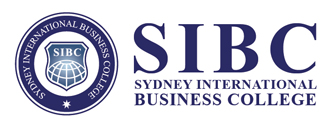About Australia
Cost of living and money matters
Up-to-date and more detailed information money and banking in Australia is available at the following website http://www.studyinaustralia.gov.au. This website is established and maintained by the Australian government
Money and banks
Australian currency is the only legal tender in Australia. When you first arrive, money from other countries can be changed at the exchange facilities located at international airports, banks and major hotels. Traveller’s cheques are easier to use if already in Australian dollars, however, banks will cash travellers cheques in virtually any currency. Major hotels and some shops will cash travellers cheques, depending on individual store policy.
It is a good idea to set up an Australian bank account. You will need to provide your visa and evidence of residency. Banking services in Australia are extremely competitive. Over 20 local and numerous international banking groups are represented in Australia. All major banks have a branch in cities and regional centres. Most shopping centres have Automatic Teller Machines (ATM) facilities. These machines can be used for deposits and, in many instances, withdrawals 24 hours a day. Many department stores, supermarkets and specialist shops have electronic transfer terminals (EFTPOS) where cash withdrawals can also be made in addition to purchasing goods. More information on banking is available at Study in Australia
Normal bank trading hours
9.30 am – 4.00 pm Monday to Thursday
9.30 am – 5.00 pm Friday
Some banks are open Saturday mornings
Credit cards
Credit cards are widely accepted around Australia. The most commonly accepted credit cards are American Express, Bankcard, Diners International, Mastercard, Visa and their affiliates.

Currency
Australia uses a dollars and cents system of decimal currency with 100 cents in a dollar. The bank notes in use are $5, $10, $20, $50 and $100. Coins used are the silver coloured 5 cent, 10 cent, 20 cent and 50 cent and the gold coloured $1 and $2 coins.

Australia's development of the polymer (plastic) banknote heralds the introduction of advanced banknote technology for the new millennium and rewrites world standards in design. Not only does this leading-edge polymer technology offer immense security benefits but its concepts of cleanliness, environmental responsibility and recyclability set an example for the world to follow.
Tipping
Tipping is not the general custom in Australia and service charges are not added to accounts by hotels and restaurants. In better-class restaurants, it is usual to tip food and drink waiters up to 10 per cent of the bill for good service.
Porters have set charges at railway terminals, but not at hotels. However, at any time, tipping is a matter of individual choice.
Budgeting
You should work out a budget covering accommodation, food, transport, clothing and entertainment. Childcare, if applicable, should also be taken into account.
The average international student in Australia spends about $360 per week on accommodation, food, clothing, entertainment, transport, international and domestic travel, telephone and incidental costs. School students in Australia typically spend a little less - about $265 a week - on accommodation and food, entertainment, transport and associated items. While this is a realistic guide, it is important to remember that individual circumstances will vary by location, course and lifestyle.
Accommodation
The following types of accommodation are available for International students:-
1. Full Board (Homestay) AU$300 - AU$550 per week
2. Student house AU$350 - AU$600 per week
3. Half - Board AU$250 - AU$500 per week (plus expenses).
4. Leasing an apartment/unit/house (2 bedrooms) AU$500 - AU$850 per week (unfurnished)
5. Leasing a bedroom in an apartment/unit/house AU$200 - AU$400
SIBC does not provide accommodation directly to prospective students, but we do support our overseas students in regard to their accommodation. If you need information and support for accommodation in Sydney or Melbourne, please contact our friendly student services staff by sending us an email to info@sibc.nsw.edu.au or give us a call at least 21 days before you arrive in Australia.



Transport
Australia has an efficient public transport system (buses, trains and trams) in all cities. Many students ride bicycles on campus and some even have their own car for longer travel. There are also train, bus and air services between cities and towns. Students using public transport can apply for a student concession card that entitles them to discounted fares. In Sydney the cost of using Opal Card (from major suburbs to Sydney City) will normally be around AU$50 per week. The cost of similar travel distance in Melbourne will be around AU$35 to AU$40 A week.
Cost of Living
The Department of Home Affairs has financial requirements you must meet in order to receive a student visa for Australia. As of January 2023, the twelve (12) months estimated living costs are as follows:
• For students or guardians - AUD$30,000
• For partners coming with you - AUD$7,362
• For a child coming with you - AUD$3,152
The Insider Guides 'Cost of Living Calculator' is also a useful, practical tool to help estimate your cost of living in Australia www.insiderguides.com.au/cost-of-living-calculator/.
Please refer to the https://www.studyaustralia.gov.au/english/live/living-costs for more details.
Accommodation and living options
The following types of accommodation are available for international students along with its estimated ranges:
• Hotels and guesthouse - $200 to $400 per week
• Shared rentals - $150 to $300 per week
• On campus - $150 to $350 per week
• Homestay - $235 to $325 per week
• Rental - $185 to $440 per week
• Boarding schools - $14,000 to $25,000 per year
Our college does not provide accommodation directly to prospective students, but we do support our overseas students in regard to their accommodation. If you need information and support for accommodation in Sydney, please contact our staff members or give us a call at least 21 days before you arrive in Australia. For detailed information about the various types of accommodation and legal obligations and rights for renting in each state and territory, please visit https://www.studyinaustralia.gov.au/English/Live-in-Australia/Accommodation”


